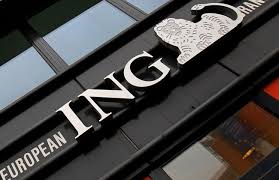ING and Danske Bank are in the spotlight for their handling of dirty money

A LINGERIE trader, a building-materials supplier and two fruit-and-vegetable importers are all accused of laundering hundreds of millions of euros through their accounts with ING, a big Dutch bank, between 2010 and 2015. Its accounts were also used by a telecoms company, VimpelCom (now VEON), to pay $ 55m in bribes in order to operate in Uzbekistan (the firm admitted the charges and reached a separate settlement with Dutch and American authorities in 2016).
ING, Dutch prosecutors say, missed the signs because of “serious and repeated shortcomings” in its approach to anti-money-laundering rules. On September 4th they fined it €775m ($ 900m). It has acknowledged failings and will hold back bonuses for, or suspend, senior staff who fell short of standards.
ING is not the only lender in the spotlight for carelessness with dirty money. On September 4th the Financial Times reported that an independent investigation commissioned by Danske Bank, Denmark’s biggest lender, had concluded that $ 30bn of Russian and ex-Soviet money had been parked in its Estonian branch in 2013 alone. An earlier investigation by Berlingske, a Danish newspaper, accused the bank of allowing $ 8.2bn of dodgy money to flow through the branch in a nine-year period. The bank is now carrying out its own inquiries. In July its boss admitted it had not lived up to its own standards when it came to preventing illegal activities. Authorities in Estonia and Denmark have launched criminal investigations.
Although regulators in Estonia found in 2014 that Danske’s Estonian branch had violated anti-money-laundering rules, and those in Denmark have pinpointed “serious deficiencies in the bank’s governance”, it has not yet been fined. Its own findings will be published later this month, five years after a whistleblower first raised the alarm.
The cases add to concerns about Europe’s defences against money-laundering. In 2012 members of the euro zone agreed to cede regulation of systemically important banks to the European Central Bank (ECB). But national authorities still supervise compliance with anti-money-laundering and terrorist-financing rules.
Money-launderers target countries where defences are weak, says Bill Browder, the chief executive of Hermitage Capital Management, an investment fund. He is a noted critic of the Russian government, and it was his complaint to Estonian authorities that led to the criminal probe into Danske. Banks in Cyprus, Latvia and Lithuania have faced allegations. In July the European Banking Authority (EBA) found failings in Malta’s oversight of Pilatus Bank, a lender that has been at the centre of money-laundering accusations. The Maltese authorities expressed “serious reservations” about the EBA’s findings. The bank, which had its assets frozen in March after its chairman was arrested in America for allegedly violating sanctions against Iran, has denied all charges against it.
Small countries with oversize banking sectors are thought to be particularly vulnerable. They may lack the cash—or zeal—for monitoring and investigation. Regulators may not be truly independent, says Panicos Demetriades, a former governor of the central bank of Cyprus. Where political ties to Russia are strong, for example, they may be pressed to look the other way.
Some law-enforcement agencies regard money-laundering as a victimless crime and care little about it, says Mr Browder. He criticises Britain’s in particular. America’s are more assertive—and have a global impact. ABLV, one of Latvia’s largest banks, went into liquidation in June after the Treasury labelled it a “primary money-laundering concern” and warned other financial institutions against dealing with it.
Anti-money-laundering rules in the European Union have been tightened once this year. Another review is under way. A report on improving oversight, prepared by EU authorities, has been sent to members. One of the proposals includes a centralised anti-money-laundering body. The idea has the support of both Danièle Nouy, the ECB’s bank-supervision chief, and Andrea Enria, the head of the EBA, which harmonises national supervisory rules across the EU. But countries with close links to Russia may have to be dragged along.
This article appeared in the Finance and economics section of the print edition under the headline “Stubborn stains”